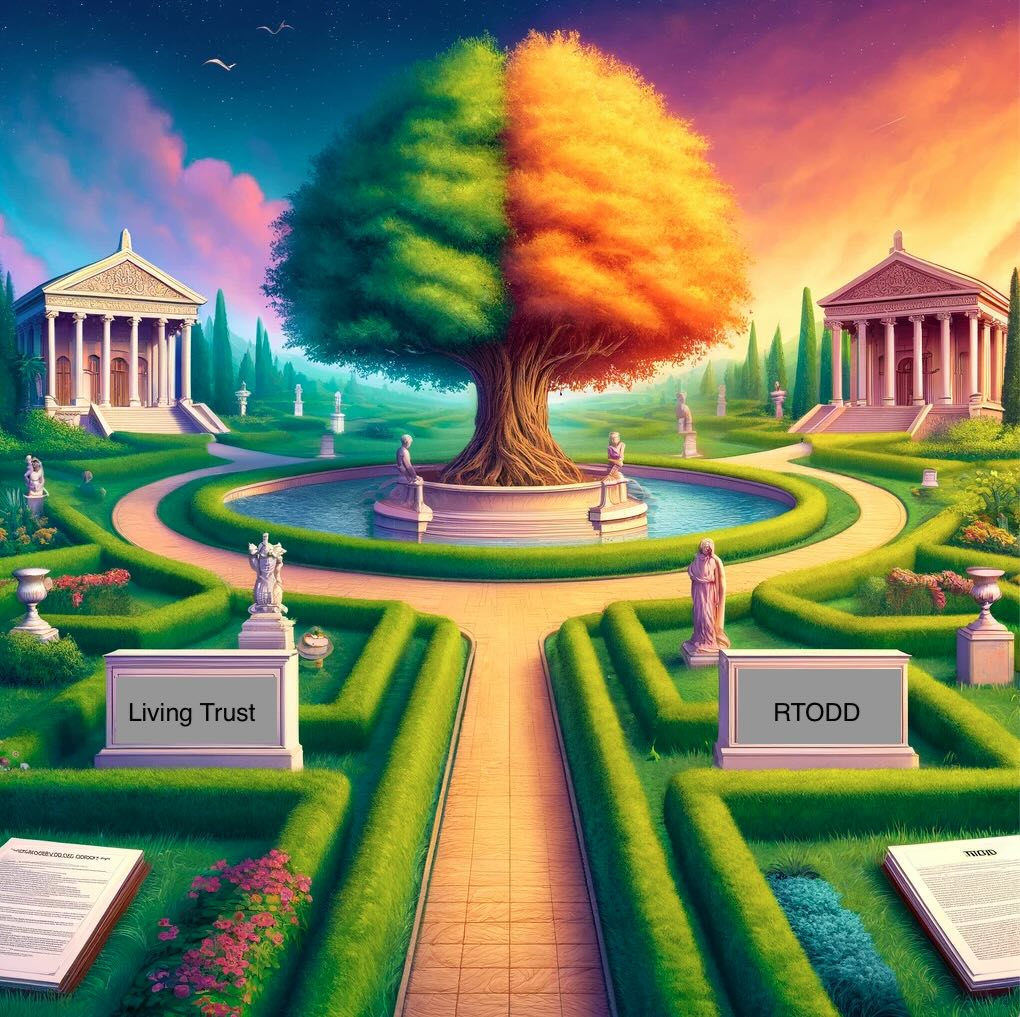RTOD Deeds – Revocable Transfer on Death Deeds
Starting on January 1, 2016, California introduced a law allowing Revocable Transfer on Death (TOD) Deeds. These legal tools let a property owner give their real estate to a chosen person (beneficiary) when they pass away, without the need for probate court. This assumes that everything is done correctly and there are no significant changes in family circumstances, such as the beneficiary (for example, a child) passing away before you, the property owner.
Benefits of RTODDs
- Avoid Probate: If arranged properly and without major unforeseen changes in the family, these deeds bypass the lengthy and costly probate court process.
- Cost-effective Alternative: They offer a simpler, less expensive option compared to setting up a living trust or other methods traditionally used to avoid probate.
- Flexibility to Change Mind: The property owner can cancel (revoke) the deed at any time while they are alive, offering flexibility if circumstances or decisions change.
- Tax Benefits: These deeds provide the same tax benefits as if the property was transferred through a trust or inherited under a will.
Drawbacks of RTODDs compared to Revocable Living Trusts
- Limited Asset Types: RTODDs are specifically for real property transfers, while Revocable Living Trusts can include a diverse range of assets, such as real estate, bank accounts, and personal possessions.
- Lack of Flexibility for Complex Situations: RTODDs offer a straightforward approach that doesn’t cater to nuanced estate planning needs like staggered distributions or trusts for minors. In contrast, Revocable Living Trusts provide extensive flexibility for tailored estate planning.
- No Provision for Incapacity: If the property owner becomes incapacitated before death, RTODDs do not facilitate the management of the property. Revocable Living Trusts, however, can include incapacity provisions, allowing a successor trustee to manage the trust’s assets.
- Potential for Unintended Consequences: The simplicity of creating and revoking RTODDs may lead to outcomes not intended by the owner, especially if changes in intentions are not accurately reflected in updated documents, possibly resulting in disputes among heirs.
Background on the Law
For those creating an RTODD, California Probate Code sections 5642 – 5644 detail the required content of the RTODD form, including a section titled “Common Questions about the Use of this Form,” designed to make information more accessible and understandable.
How to execute an RTODD
Given the importance of following specific requirements to ensure the RTODD is valid, individuals without legal representation should be especially diligent about following the process. A comprehensive guide available through the Sacramento County Public Law Library, updated as of 2022, offers valuable assistance.
Where to get advice

